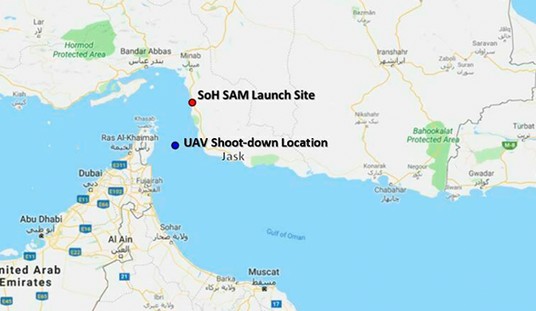The United States’ shale boom has been responsible for more trickle-down economic benefits than I can even begin to count, but the latest and perhaps greatest policy side-effect of the thriving oil-and-gas revolution is perhaps lawmakers’ newfound willingness to reconsider the crude-oil export restrictions currently hindering the industry and wider American economy from even better successes. Our domestic energy sector is awash in even more energy resources than we know what to do with, but our longstanding and highly selective lack of support for the robust free-trade policies that would better allow us to take advantage of the boom are still holding us back — and the time might perhaps to be ripe to put an end to those restrictions’ unfortunate staying power. Via The Hill:
Sen. Lisa Murkowski (R-Alaska) wants to lead the debate on whether the U.S. should break with its decades-old ban on crude oil exports.
And she wants to start it soon — by mid-January, to be exact.
Murkowski plans to release a white paper on the pros and cons of opening the country’s export policy on crude, one of her top aides told The Hill.
“Sen. Murkowski believes the debate on energy exports is coming sooner rather than later,” said Robert Dillon, an aide to the senator, who sits on the chamber’s Energy and Natural Resources Committee.
“The debate has been centered on natural gas, and she wants to switch it to oil.”
The fight over increasing the allowed level of natural-gas exports has indeed been the hot energy-related debate over the past year or so, with certain Democrats acting particularly protective of the special interests that would like to forcibly keep natural gas prices as low as possible (despite President Obama’s own personal goal of increasing U.S. exports as a direct means to strengthen the economy! …I feel like I’m taking crazy pills), but the debate over whether or not to free up the oil market is likely to be equally if not even more contentious with all kinds of intellectually cheap notions like “energy independence” as well as specially-interested rent-seeking coming in from all partisan sides.
Fortunately, there’s a standing possibility that the Obama administration might be able to get on board with the idea:
US Energy Secretary Ernest Moniz Thursday said with the US awash in domestically produced oil, it may be time to review the country’s ban on crude exports. …
As for crude exports, Moniz noted that any decision on whether to relax the ban is up to the Department of Commerce, not DOE, but he said his agency would be ready to provide any technical analysis if called upon. The US bans exports of crude, except for a small amount to Canada.
“Those restrictions on exports were borne, as was the Department of Energy and the Strategic Petroleum Reserve, on oil disruptions,” Moniz said. “There are lots of issues in the energy space that deserve some new analysis and examination in the context of what is now an energy world that is no longer like the 1970s.”
One of the biggest kickers in this upcoming debate is going to be whether or not changing the current policy might lead to rising gasoline policies — but even an increase in gas prices isn’t necessarily a sure thing, as Neil Hume explains at the Financial Times (h/t to Scott Lincicome):
The US crude oil market has decoupled from the global market because severe restrictions on exports mean that fast-growing US crude production is effectively captive to the domestic market, putting downward pressure on prices. …
“Gasoline, as a globally traded commodity, trades against Brent. The crude export ban serves to lower WTI, leaving refiners to capture the spread between US crudes and global gasoline prices,” says analyst Seth Kleinman. “If lower gasoline prices for the US consumer are a desired aim, the US should be exporting crude, and lowering Brent and hence global gasoline prices in the process.”
Now, the idea of relaxing the draconian rules on US crude exports is usually dismissed by industry executives. They ask what American president would push for a policy that could in the event of geopolitical instability in the Middle East, for example, lead to higher prices at the petrol pump.
But it could also do the reverse.
“If liberalised US crude exports narrowed the spread and knocked $5 a barrel off Brent in the process, then ceteris paribus US politicians could expect to see US gasoline prices fall by 12 cents a gallon,” says Mr Kleinman.”
The global oil market is a complex beast, and it’s tough to know precisely what will happen until we allow it to, but the biggest point to remember here is that either way, free trade is not a zero-sum game. Restrictions on what we can and cannot export or import are nothing more than artificial market manipulations that selectively benefit a particular interest group at the direct expense of everyone else; even if gasoline prices did increase as a result of increased exports, American producers and subsequently the larger domestic economy would be among those reaping the benefits of that expanded global market. It really is that simple.








Join the conversation as a VIP Member